Podcast: Play in new window | Download (Duration: 7:51 — 5.5MB) | Embed
Subscribe: Apple Podcasts | Spotify | Amazon Music | Android | Pandora | iHeartRadio | JioSaavn | Podchaser | Gaana | Podcast Index | Email | TuneIn | Deezer | Anghami | RSS | More
Part 3 – Chapter 40 of the Introduction to the Devout Life by St. Francis de Sales
This is a Discerning Hearts recording read by Correy Webb
PART 3 – CHAPTER XL. Counsels to Widows
“SAINT PAUL teaches us all in the person of S. Timothy when he says, “Honour widows that are widows indeed.” 122Now to be “a widow indeed” it is necessary:—
1. That the widow be one not in body only, but in heart also; that is to say, that she be fixed in an unalterable resolution to continue in her widowhood Those widows who are but waiting the opportunity of marrying again are only widowed in externals, while in will they have already laid aside their loneliness. If the “widow indeed” chooses to confirm her widowhood by offering herself by a vow to God, she will adorn that widowhood, and make her resolution doubly sure, for the remembrance that she cannot break her vow without danger of forfeiting Paradise, will make her so watchful over herself, that a great barrier will be raised against all kind of temptation that may assail her. S. Augustine strongly recommends Christian widows to take this vow, and the learned Origen goes yet further, for he advises married women to take a vow of chastity in the event of losing their husbands, so that amid the joys of married life they may yet have a share in the merits of a chaste widowhood. Vows render the actions performed under their shelter more acceptable to God, strengthen us to perform good works, and help us to devote to Him not merely those good works which are, 283 so to say, the fruits of a holy will, but to consecrate that will itself; the source of all we do, to Him. By ordinary chastity we offer our body to God, retaining the power to return to sensual pleasure; but the vow of chastity is an absolute and irrevocable gift to Him, without any power to recall it, thereby making ourselves the happy slaves of Him Whose service is to be preferred to royal power. And as I greatly approve the counsels of the two venerable Fathers I have named, I would have such persons as are so favoured as to wish to embrace them, do so prudently, and in a holy, stedfast spirit, after careful examination of their own courage, having asked heavenly guidance, and taken the advice of some discreet and pious director, and then all will be profitably done.
2. Further, all such renunciation of second marriage must be done with a single heart, in order to fix the affections more entirely on God, and to seek a more complete union with Him. For if the widow retains her widowhood merely to enrich her children, or for any other worldly motive, she may receive the praise of men, but not that of God, inasmuch as nothing is worthy of His Approbation save that which is done for His Sake. Moreover, she who would be a widow indeed must be voluntarily cut off from all worldly delights. “She 284 that liveth in pleasure is dead while she liveth,” S. Paul says. 123A widow who seeks to be admired and followed and flattered, who frequents balls and parties, who takes pleasure in dressing, perfuming and adorning herself, may be a widow in the body, but she is dead as to the soul. What does it matter, I pray you, whether the flag of Adonis and his profane love be made of white feathers or a net of crape? Nay, sometimes there is a conscious vanity in that black is the most becoming dress; and she who thereby endeavours to captivate men, and who lives in empty pleasure, is “dead while she liveth,” and is a mere mockery of widowhood.
“The time of retrenchment is come, the voice of the turtle is heard in our land.” 124 Retrenchment of worldly superfluity is required of whosoever would lead a devout life, but above all, it is needful for the widow indeed, who mourns the loss of her husband like a true turtle-dove. When Naomi returned from Moab to Bethlehem, those that had known her in her earlier and brighter days were moved, and said, “Is this Naomi? And she said unto them, Call me not Naomi (which means beautiful and agreeable), call me Mara, for the Almighty 285 hath dealt very bitterly with me. I went out full, and the Lord hath brought me home again empty.” 125Even so the devout widow will not desire to be called or counted beautiful or agreeable, asking no more than to be that which God wills,—lowly and abject in His Eyes.
The lamp which is fed with aromatic oil sends forth a yet sweeter odour when it is extinguished; and so those women whose married love was true and pure, give out a stronger perfume of virtue and chastity when their light (that is, their husband) is extinguished by death. Love for a husband while living is a common matter enough among women, but to love him so deeply as to refuse to take another after his death, is a kind of love peculiar to her who is a widow indeed. Hope in God, while resting on a husband, is not so rare, but to hope in Him, when left alone and desolate, is a very gracious and worthy thing. And thus it is that widowhood becomes a test of the perfection of the virtues displayed by a woman in her married life.
The widow who has children requiring her care and guidance, above all in what pertains to their souls and the shaping of their lives, cannot and ought not on any wise to forsake 286 them. S. Paul teaches this emphatically, and says that those who “provide not for their own, and specially for those of their own house, are worse than an infidel;” 126but if her children do not need her care, then the widow should gather together all her affections and thoughts, in order to devote them more wholly to making progress in the love of God. If there is no call obliging her in conscience to attend to external secular matters (legal or other), I should advise her to leave them all alone, and to manage her affairs as quietly and peacefully as may be, even if such a course does not seem the most profitable. The fruit of disputes and lawsuits must be very great indeed before it can be compared in worth to the blessing of holy peace; not to say that those legal entanglements and the like are essentially distracting, and often open the way for enemies who sully the purity of a heart which should be solely devoted to God.
Prayer should be the widow’s chief occupation: she has no love left save for God,—she should scarce have ought to say to any save God; and as iron, which is restrained from yielding to the attraction of the magnet when a diamond is near, darts instantly towards it so soon as the diamond is removed, so the widow’s heart, which could not rise up wholly to God, or simply follow the leadings of His Heavenly Love during her husband’s life, finds 287 itself set free, when he is dead, to give itself entirely to Him, and cries out, with the Bride in the Canticles, “Draw me, I will run after Thee.” 127I will be wholly Thine, and seek nothing save the “savour of Thy good ointments.”
A devout widow should chiefly seek to cultivate the graces of perfect modesty, renouncing all honours, rank, title, society, and the like vanities; she should be diligent in ministering to the poor and sick, comforting the afflicted, leading the young to a life of devotion, studying herself to be a perfect model of virtue to younger women. Necessity and simplicity should be the adornment of her garb, humility and charity of her actions, simplicity and kindliness of her words, modesty and purity of her eyes,—Jesus Christ Crucified the only Love of her heart.
Briefly, the true widow abides in the Church as a little March violet, 128shedding forth 288 an exquisite sweetness through the perfume of her devotion, ever concealing herself beneath the ample leaves of her heart’s lowliness, while her subdued colouring indicates her mortification. She dwells in waste, uncultivated places, because she shrinks from the world’s intercourse, and seeks to shelter her heart from the glare with which earthly longings, whether of honours, wealth, or love itself, might dazzle her. “Blessed is she if she so abide,” says the holy Apostle.
Much more could I say on this subject, but suffice it to bid her who seeks to be a widow indeed, read S. Jerome’s striking Letters to Salvia, and the other noble ladies who rejoiced in being the spiritual children of such a Father. Nothing can be said more, unless it be to warn the widow indeed not to condemn or even censure those who do resume the married life, for there are cases in which God orders it thus to His Own greater Glory. We must ever bear in mind the ancient teaching, that in Heaven virgins, wives, and widows will know no difference, save that which their true hearts’ humility assigns them.”


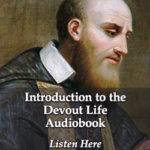


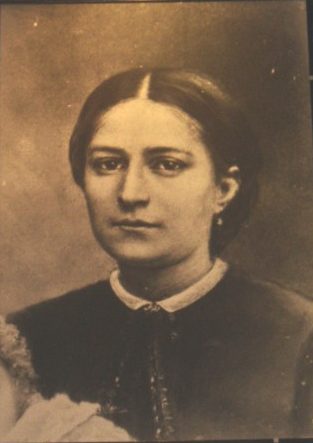 Here are some of the various texts Fr. Gallagher refers to in this episode:
Here are some of the various texts Fr. Gallagher refers to in this episode:
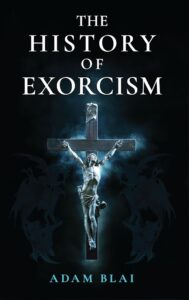
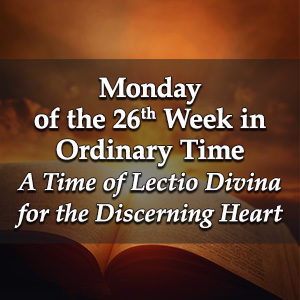 Monday of the Twenty-Sixth Week in Ordinary Time – A Time of Lectio Divina for the Discerning Heart Podcast
Monday of the Twenty-Sixth Week in Ordinary Time – A Time of Lectio Divina for the Discerning Heart Podcast Msgr. Esseff reflects on the life and prayer of St. Therese, the Little Flower. He speaks of her simplicity of heart and great humility in her “little way”. He shares his experience of his own mother’s prayer and that of St. Mother Teresa of Calcutta, who both loved and prayed with the “Little Flower”. The key is her
Msgr. Esseff reflects on the life and prayer of St. Therese, the Little Flower. He speaks of her simplicity of heart and great humility in her “little way”. He shares his experience of his own mother’s prayer and that of St. Mother Teresa of Calcutta, who both loved and prayed with the “Little Flower”. The key is her  “hiddenness” and the beauty of a child. She has a special message for women the world over, especially for our culture in the United States.
“hiddenness” and the beauty of a child. She has a special message for women the world over, especially for our culture in the United States.
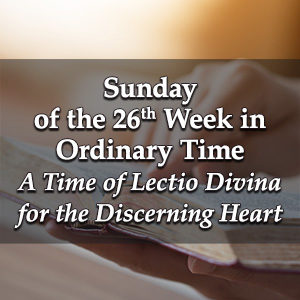 Sunday of the Twenty-Sixth Week in Ordinary Time – A Time of Lectio Divina for the Discerning Heart Podcast
Sunday of the Twenty-Sixth Week in Ordinary Time – A Time of Lectio Divina for the Discerning Heart Podcast



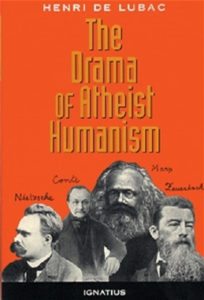 You can find the book
You can find the book 


 Dr. Lilles discusses sin and temptation, but also the great gift of mercy and a life of true humility.
Dr. Lilles discusses sin and temptation, but also the great gift of mercy and a life of true humility.

